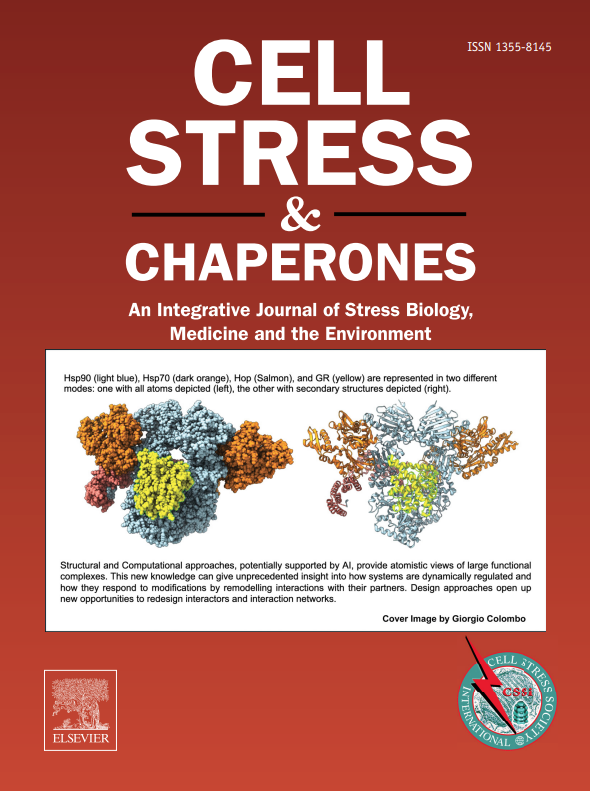Response to oxidative stress of peripheral blood mononuclear cells from multiple sclerosis patients and healthy controls
IF 3.3
3区 生物学
Q3 CELL BIOLOGY
引用次数: 0
Abstract
The complex scenario of multiple sclerosis (MS) pathology involves several mechanisms, including oxidative stress response. The heat shock proteins (HSPs) are important for the protection of the cells; however, their role in MS is not clear. The present research is focused on the response of peripheral blood mononuclear cells (PBMCs) to oxidative stress and to the involvement of HSP70-2 (a protein coded by the HSPA1B gene, located in the MHC class III). To this aim, we challenged PBMCs from MS patients and healthy controls with hydrogen peroxide. Specifically, PBMCs mitochondrial activity, HSP70-2 protein expression and the production of intracellular reactive oxygen species were assessed. These parameters were also related to the HSP70-2 rs1061581 polymorphism, which is linked to the risk of developing MS. Moreover, mitochondrial activity and HSP70-2 protein levels were also related to disease severity. Overall, our results indicate that PBMCs, from both MS patients and healthy controls, may display a similar response towards an oxidative insult; within this context, HSP70-2 does not seem to be central in the protection of PBMCs. Nevertheless, the HSP70-2 rs1061581 polymorphism is related to ROS levels and appears to have a role in the different expression of HSP70-2 under oxidative stimulus.
多发性硬化症患者和健康对照组外周血单核细胞对氧化应激的反应。
多发性硬化症(MS)病理过程复杂,涉及多种机制,包括氧化应激反应。热休克蛋白(HSPs)对保护细胞非常重要,但它们在多发性硬化症中的作用尚不明确。本研究的重点是外周血单核细胞(PBMC)对氧化应激的反应以及 HSP70-2(一种由 HSPA1B 基因编码的蛋白质,位于 MHC III 类)的参与。为此,我们用过氧化氢挑战了多发性硬化症患者和健康对照组的 PBMCs。具体来说,我们评估了 PBMC 的线粒体活性、HSP70-2 蛋白表达和细胞内活性氧的产生。这些参数还与 HSP70-2 rs1061581 多态性有关,该多态性与多发性硬化症的发病风险相关。此外,线粒体活性和 HSP70-2 蛋白水平也与疾病的严重程度有关。总之,我们的研究结果表明,多发性硬化症患者和健康对照组的白细胞介导细胞对氧化损伤的反应相似;在这种情况下,HSP70-2 似乎不是保护白细胞介导细胞的核心。然而,HSP70-2 rs1061581 多态性与 ROS 水平有关,似乎在氧化刺激下 HSP70-2 的不同表达中起了作用。
本文章由计算机程序翻译,如有差异,请以英文原文为准。
求助全文
约1分钟内获得全文
求助全文
来源期刊

Cell Stress & Chaperones
生物-细胞生物学
CiteScore
7.60
自引率
2.60%
发文量
59
审稿时长
6-12 weeks
期刊介绍:
Cell Stress and Chaperones is an integrative journal that bridges the gap between laboratory model systems and natural populations. The journal captures the eclectic spirit of the cellular stress response field in a single, concentrated source of current information. Major emphasis is placed on the effects of climate change on individual species in the natural environment and their capacity to adapt. This emphasis expands our focus on stress biology and medicine by linking climate change effects to research on cellular stress responses of animals, micro-organisms and plants.
 求助内容:
求助内容: 应助结果提醒方式:
应助结果提醒方式:


